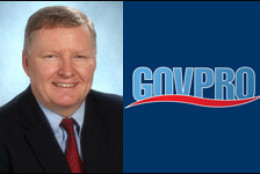General Services Administration
-
GSA, State and the Air Force are starting to see the benefits of using social media data to improve services and not focusing so much on how it's delivered. Challenges and contests are examples of this information-centric approach. But the dependence on and acceptance of social media platforms is growing across nearly every agency.
January 10, 2013 -
The agency raised the rate for using a privately owned vehicle to $0.565 per mile. Rates for airplane travel and motorcycles also went up.
January 08, 2013 -
Michael Keating, senior editor for Government Product News, joins host Mark Amtower to talk about the GSA scandal, and other big stories in 2012. January 7, 2013
January 07, 2013 -
Jimmy Christianson of the Associated General Contractors of America discusses government construction projects currently underway. Billy House of the National Journal talks about an article he wrote on the new Congress. Roger Waldron, president of the Coalition for Government Procurement, talks about GSA's Multiple Awards Schedule. Tim Solms of Microsoft discusses a new deal his company signed with DoD. Lisa Wolfe of Federal News Radio sheds light on a new website for federal job seekers. Brian Friel of Bloomberg Government talks about the new bill providing federal Sandy relief spending.
January 07, 2013 -
The Network Services 2020 initiative will not be a large worldwide contract as the Networx and FTS procurements were over the past 20 years. GSA still is developing the overall strategy, but plans to use a similar approach it used with DISA on the recent satellite communications contract.
January 04, 2013 -
The General Services Administration is soliciting nominations for individuals to serve on the 15-member Government-wide Travel Advisory Committee. The new committee will oversee agency travel policies to ensure that they are transparent and efficient.
December 31, 2012 -
Carolyn Alston and Bill Gormley from the Coalition for Government Procurement will discuss the procurement highlights and lowlights in 2012. December 25, 2012 (Encore presentation January 1, 2013)
December 26, 2012 -
The General Services Administration issued two requests for information earlier this month to redevelop the FBI headquarters building and the area of Washington known as Federal Triangle South. Acting Administrator Dan Tangherlini said he's willing to entertain any and all ideas for saving the government money, making the buildings more efficient and helping to transform the neighborhoods.
December 21, 2012 -
The White House typically gives agencies both funding and policy updates for the upcoming budget request by Thanksgiving. This year OMB decided to hold off on passback guidance because of the current fiscal negotiations with Congress. Several senior agency officials said this lag will compress the timeline to respond to the information and require them to prepare for something that may never happen.
December 20, 2012 -
The blanket purchase agreement lists 15 tools and 11 service areas that DHS wants vendors to provide to improve agency cybersecurity.
December 19, 2012 -
Bob Litan of Bloomberg Government talks about a new study on reducing the deficit. Procurement attorney Joe Petrillo weighs in on a recent GAO decision. Lisa Pape discusses the Veterans Health Administration's efforts to reduce homelessness among veterans. Charles Paidock of the NFFE union talks about a proposal that would have some feds emptying their own waste bins. Hord Tipton reviews how the certification process is keeping up with new technology.
December 18, 2012 -
Preliminary results from a Grant Thornton survey of contractors show profits, revenues and overall participation in the government market is down. The pressure from the administration's steps to reign in high risk contracts and reduce spending is having an impact on most contractors. The Navy, for example, is trying to be more disciplined in how it buys goods and services.
December 17, 2012 -
The General Services Administration announced Thursday it had awarded 43 blanket-purchase agreements to small businesses to provide discounted commodity IT through the agency's National Information Technology Commodity Program (NITCP). The NITCP is designed to provide agencies a one-stop shop for the most commonly purchased, low-cost IT products.
December 13, 2012 -
During Hurricane Sandy, agencies like FEMA and NOAA used various social media platforms to communicate with the public. They were able to dispel rumors and follow the situation on the ground as it unfolded.
December 11, 2012 -
Todd Harrison of the Center for Strategic and Budgetary Assessment talks about possible defense cuts due to sequestration. Attorney Bill Bransford discusses the legal ramifications of lie detectors. Social media expert Justin Herman of the GSA explains how social media is being used in the aftermath of emergencies. John Palguta of the Partnership for Public Service ponders what may be in store for feds in 2013. Paul Verkuil explains what the Administrative Conference of the United States has been up to.
December 11, 2012




